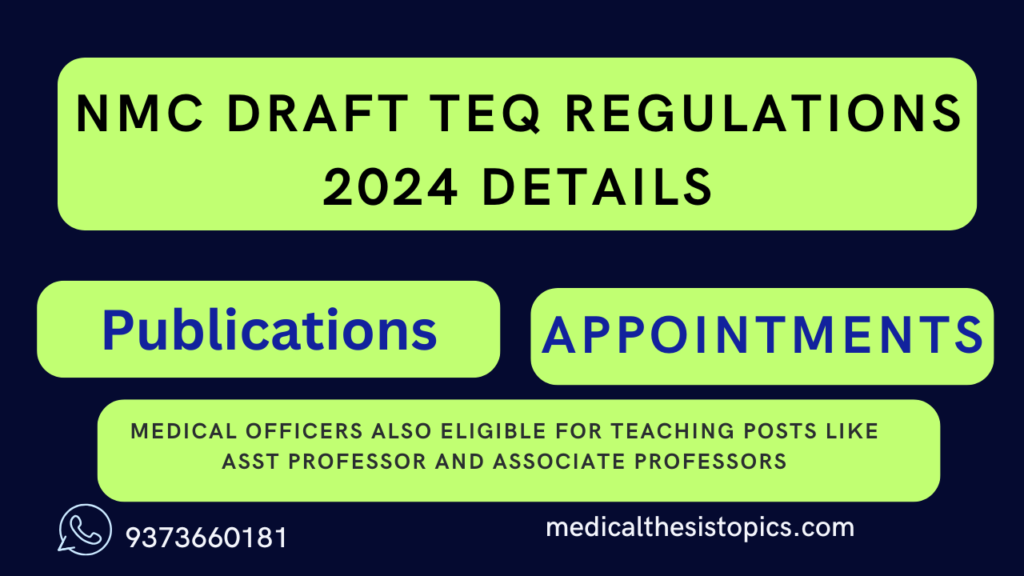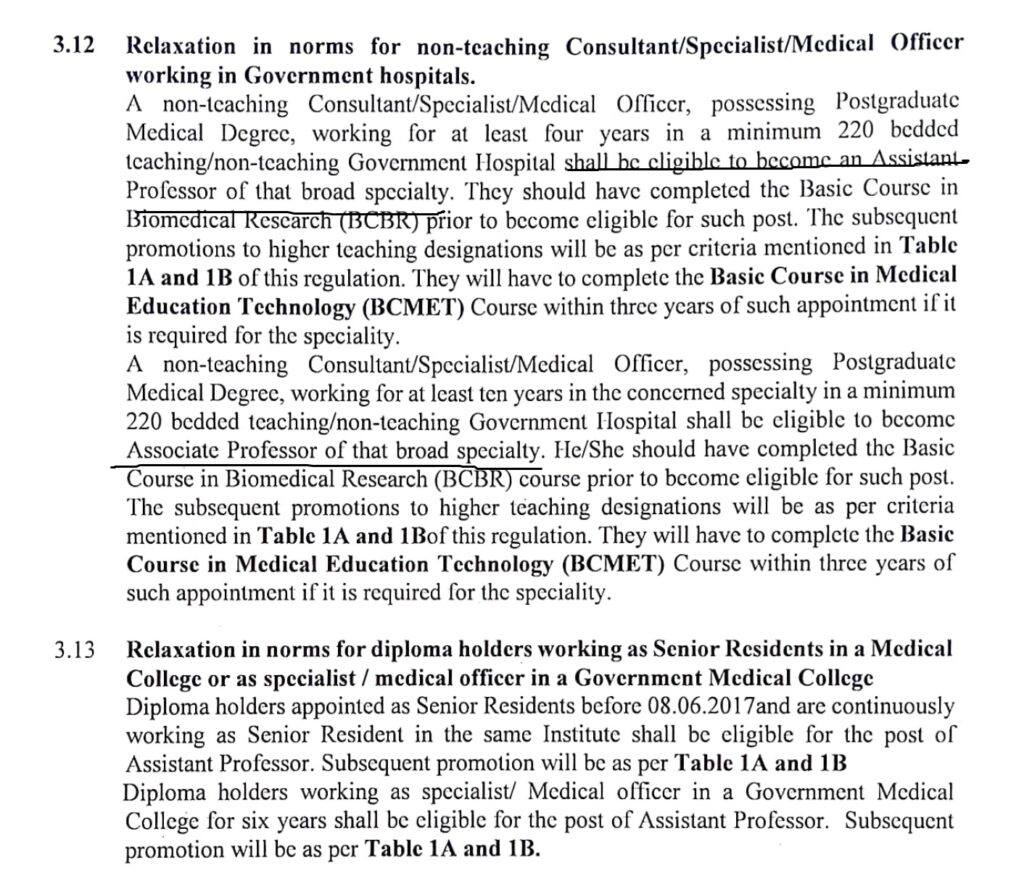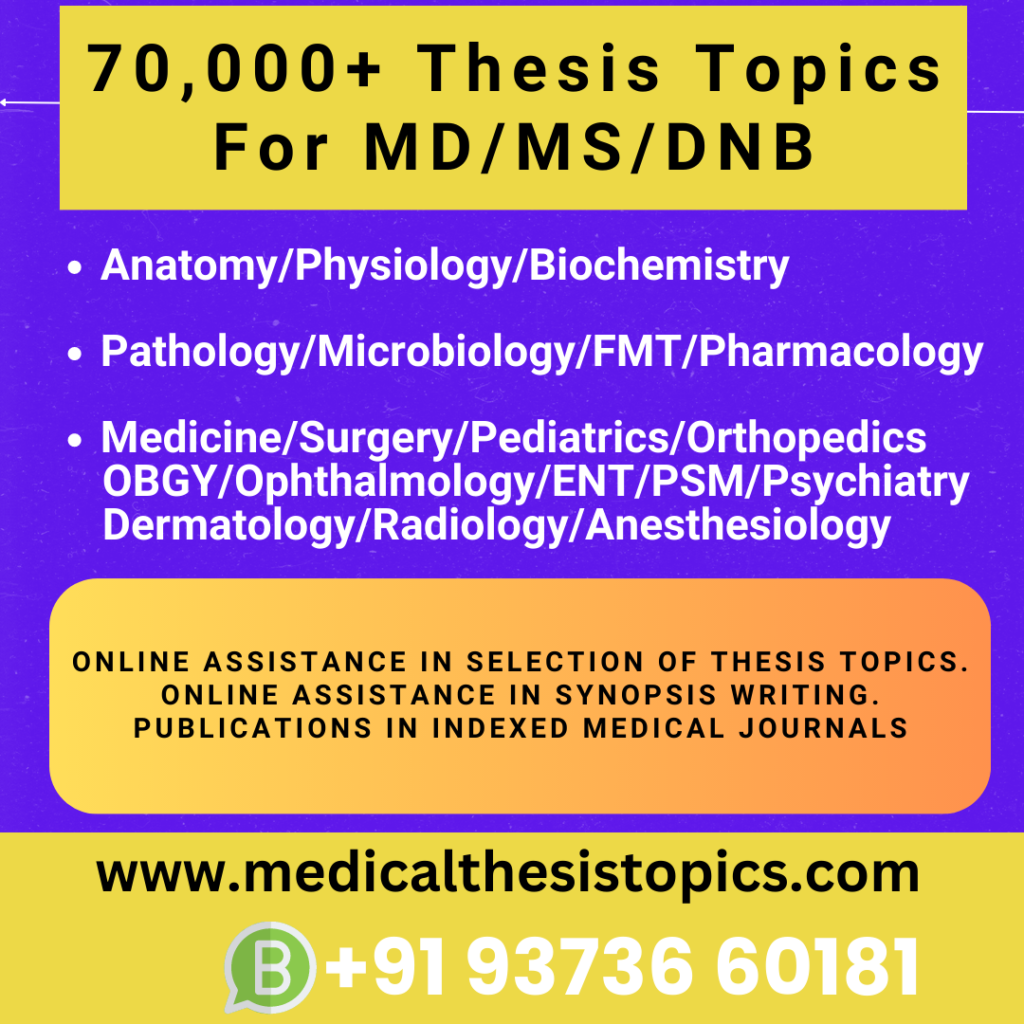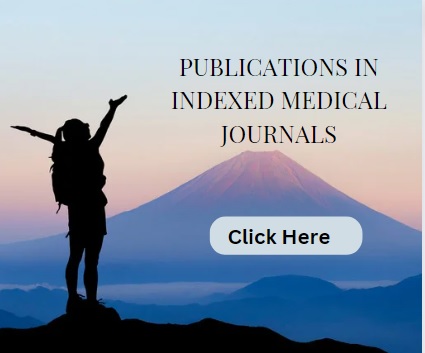Big Breaking News!

Medical Officers Now Eligible for Direct Faculty Positions in Medical Colleges
In a landmark decision, the National Medical Commission (NMC) has unveiled the new Teachers Eligibility Qualifications in Medical Institutions Regulations, 2024 (TEQ-2024). These regulations introduce significant changes in the appointment norms for faculty positions in medical colleges across India. Among the notable provisions, medical officers (MOs) working in government hospitals can now directly join as Assistant Professors or Associate Professors, provided they meet specific eligibility criteria.
Eligibility Criteria for Medical Officers
Under the new guidelines:
- Assistant Professors: Medical officers with a postgraduate medical degree and a minimum of four years of experience in a 220+ bedded government teaching or non-teaching hospital are eligible to apply. Completion of the Basic Course in Biomedical Research (BCBR) is mandatory before appointment.
- Associate Professors: Medical officers with at least ten years of experience in their specialty in similar settings are eligible. They must also complete the BCBR course and undertake the Basic Course in Medical Education Technology (BCMET) within three years of their appointment.

Implications for Medical Education
This move aims to address faculty shortages in medical institutions and enhance the availability of teaching staff for undergraduate and postgraduate medical education. The provision also allows for experienced medical officers to transition into academia, bringing their rich clinical expertise into classrooms and skill labs.
Highlights of TEQ-2024
- Standardization of Appointments: The regulations ensure uniformity in eligibility criteria and streamline the process for appointing faculty across India.
- Recognition of Experience: Clinical experience in government hospitals is now valued equivalently to traditional academic roles for certain teaching positions.
- Flexibility in Career Pathways: Diploma holders and consultants in specific roles also have new avenues for progression within the academic system.
Relaxations and Transition Periods
The regulations include transitional provisions for faculty in broad and super specialties, ensuring that the workforce adapts to the new norms without disruption. Faculty teaching in super specialties and consultants fulfilling National Board of Examinations in Medical Sciences (NBEMS) criteria as postgraduate teachers will also see expanded opportunities under the new framework.
A Step Toward Excellence
Dr. (Prof.) B. Srinivas, Secretary of the NMC, emphasized that these regulations aim to uphold high standards in medical education while addressing the critical shortage of qualified faculty. “By integrating experienced medical officers into teaching roles, we bridge the gap between clinical expertise and academic knowledge, ultimately benefiting medical students and the healthcare system as a whole,” he stated.
Feedback and Suggestions
The NMC has invited stakeholders to share their feedback on the draft regulations within seven days of its publication. Suggestions can be sent to DraftTEQregulation2024@nmc.org.in.
This revolutionary change is poised to reshape the landscape of medical education in India, offering new career opportunities to medical officers and ensuring quality education for future healthcare professionals.








